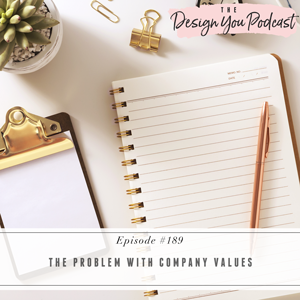
When it comes to company values, do you know yours? If you work for a business, do you know what the company’s values are? Now, I’m not talking just kind of knowing them or relaying a couple of words, but do you actually know them?
It might seem too good to be true that 3 – 5 little words could truly guide you from moment to moment, but I promise, it’s not. My values guide me in all of my decisions, have kept me from getting stuck, and ensure stay clear on where we stand as a company and they can be a gamechanger for your business if used appropriately.
Join me this week as I share the problem with company values and show you what to do if your company values aren’t quite right. The more you understand what you value, the more your customers and clients will too, so I’m showing you how to get clear on your company values and implement them in the day-to-day operations and decision-making in your business.
If you would like help creating your values, we’re opening up the doors to our Millionaire Mentorship Program in a few weeks. And if you just can’t wait for us to release the information, DM me on Instagram and I’ll tell you more about it!
If you want help creating a business with thriving revenue streams so that you can design the life you really want, get on the waitlist for the next round of my Design You Coaching Program. Inside, you’ll get access to a whole new course where I share my complete design system with you. You’ll receive every template, tool, SOP, worksheet, downloadable, video, and more that I have created and used myself, and receive a complete step-by-step for how to run your full-service projects.





